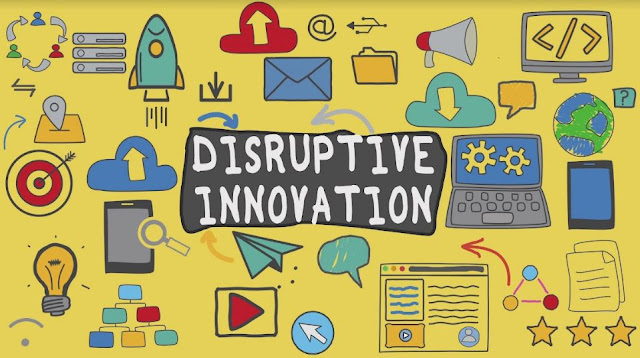
The pace of technological innovation is quickening, and advances in technology are changing how people work, live, and do business. Some of these innovations are disruptive. Disruptive technology affects consumers, businesses, or industries significantly because disruptive technologies displace the traditional systems or habits with superior features.
Mobile devices, wearable electronic devices, the Internet of Things (IoT), real-time, services, and concepts are examples of innovations that profoundly impact industries, disrupting markets and resulting in irreversible changes.
Below is an insight into the benefits of disruptive technology for small businesses:
1. Potential For Growth
Embracing disruptive technology opens the way for growth either within a business' current industry or within a new initiative created by the technology.
Using disruptive technology smoothly within an existing product and service lines can help companies transition current customers into using it while quickly and easily attracting new customers through their entry into a fresh market.
Businesses that are open to new ideas and innovations are open to future possibilities that do not exist yet. Try seeing your business from the future with innovators such as Gio Letellier.
2. Improved Efficiency
When a business understands what advanced technology can do, such as AI (artificial intelligence), business efficiency can be significantly improved, resulting in rapid growth.
AI isn’t some alarming trend mastered by only the largest companies. In fact, by integrating AI technology into marketing, human resources, production, and sales, even small business owners can create more successful operations.
Your most valuable asset is your employees. If you fail to engage and motivate them, you will have a more challenging time growing your business. Technology like AI can be instrumental in improving employee engagement and other business areas to increase productivity and overall efficiency.
3. Automation
We can automate preparing expense reports, managing social media, and running marketing campaigns, which will help us save time on things we enjoy. The more we can automate, the more time available for something we care about.
Automation is a process that removes the necessity to do repetitive tasks. Programming a computer to automate repetitive processes frees up more time for us to do more creative and complex tasks – the things that businesses can’t automate. For those on a tight budget and timeline, automation is a game-changer.
4. Cloud
Cloud computing provides your business with many benefits. It allows you to set up an office virtually to connect to your business anywhere, any time. With the increasing number of web-enabled devices used in the modern business environment, data access becomes easier.
Cloud computing enables employees to be more flexible in their work practices. For example, if you need access to your data while traveling, you can connect to your virtual office quickly and easily. Using cloud computing to manage and maintain your information technology (IT) systems may be more cost-effective.
5. Leverage Technology
It is common for business owners to identify gaps left by industry leaders and use technology to create solutions to fill them.
Apps providing convenience, new gadgets using Virtual Reality / Augmented Reality technology, and advanced systems such as blockchain technology are examples of the disruptive technologies that businesses use to their advantage.
Technological advancements will continue to create world-changing disruptions rapidly as technology makes exponential growth. Organizations can face disruptions head-on and leverage the disruption to adopt new methods and processes that disruption demands, or they will be left behind.
6. Recruit Progressive Leaders
Innovative companies place a high value on creativity and openness to new challenges, and they also tend to attract people that share those values. The benefit of attracting people from diverse backgrounds is that they bring new perspectives and help the company think outside the box.
Forward-thinking leaders are integral to a business that wants to stay ahead of the business curve and integrate disruptive technologies rather than see them as an impenetrable challenge.
7. Improved Processes
Technological disruptions force businesses to look at which processes need improvement to grow the business. The ability to identify new areas for improvement internally is crucial to remaining relevant and adapting quickly to a changing industry, thereby applying the principles of disruptive innovation to pivot and expand more rapidly.
Conclusion
The essential benefits that businesses can gain from disruptive technology include leveraging technology, using the cloud, automation, improving efficiency, and having more potential for growth.
Every industry is going to be affected by disruptive innovation and new tech. Businesses that wait too long to embrace technology disruptions will be challenged to keep up with the industry and will lose operational efficiencies and data-driven results.

